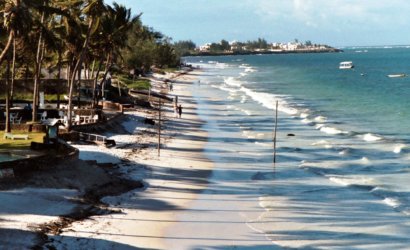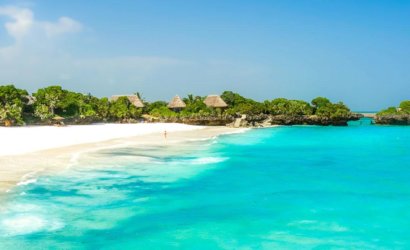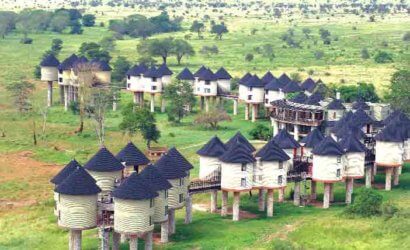Kenya - Mombasa
Mombasa (/mɒmˈbɑːsə/) is a city in the coast of Kenya along the Indian Ocean. It is the country’s oldest (circa 900 AD) and second-largest city[2] (after the capital Nairobi), with an estimated population of about 1.5 million people in 2017.[1] Its metropolitan region is the second largest in the country and has a population of approximately 3 million people.[2] Administratively, Mombasa is the county seat of Mombasa County.
Mombasa is a regional cultural and economic hub; it has an extra-large port and an international airport and is an important regional tourism centre. Located on the east coast of Kenya, it also is the home of one of the State House (Kenya), and is considered by some as a second capital in all but name. In Mombasa County and the former Coast Province, Mombasa’s situation on the Indian Ocean made it a historical trading centre,[3] and it has been controlled by many countries because of its strategic location.
Beaches
Beaches are the boundaries of nature which stop the incursion of the ocean to the land. Many people irrespective of the age love the sight of beaches and long to have fun in the sands. Many adventure watersports like Yachting, motorboating, snorkelling have their origins in Man’s desire to conquer the sea. Just watching the sunrise and sunset on the beach itself is a view to behold. Book your ticket with us or give a call at our Afriken Travel offices in Nairobi.
Sightseeing
Sightseeing is the key to any Tourist place. Visual sense stimulates the entire industry. Tourism is travel for pleasure or business. In theory and practice, tourism is the business of attracting, accommodating, and entertaining tourists. Tourism may be international or within the traveller’s country. The World Tourism Organization defines tourism more generally. It terms tourism as “beyond the common perception of tourism as being limited to holiday activity only“. The Sightseeing tourists are the ones “travelling to and staying in places outside their usual environment for leisure“.
Wildlife Safari
A safari is an overland journey, usually a trip by tourists in Africa and in the deserts. Wildlife Safari is for the cause of viewing and experiencing life in the wild without any human interventions. In the past, the trip was often a big-game hunt, but today, safaris are often to observe and photograph wildlife. Tourists also do Safaris for sightseeing. The fun of the journey is to traverse through the rugged terrains where you can see wildlife in its natural habitat.
In 1836 William Cornwallis Harris led an expedition purely to observe and record wildlife and landscapes by the expedition’s members. Harris established the safari style of the journey, starting with a not too strenuous rising at first light. He started it for an energetic day walking, an afternoon rest then concluding with a formal dinner. Later he used to tell stories in the evening over drinks and tobacco. The hunting aspect traditionally associated with the safari is said to have its origins in the early 1800s in the region of Évora, Alentejo. Here villagers got together to hunt wild boar and reclaim land for farming.




